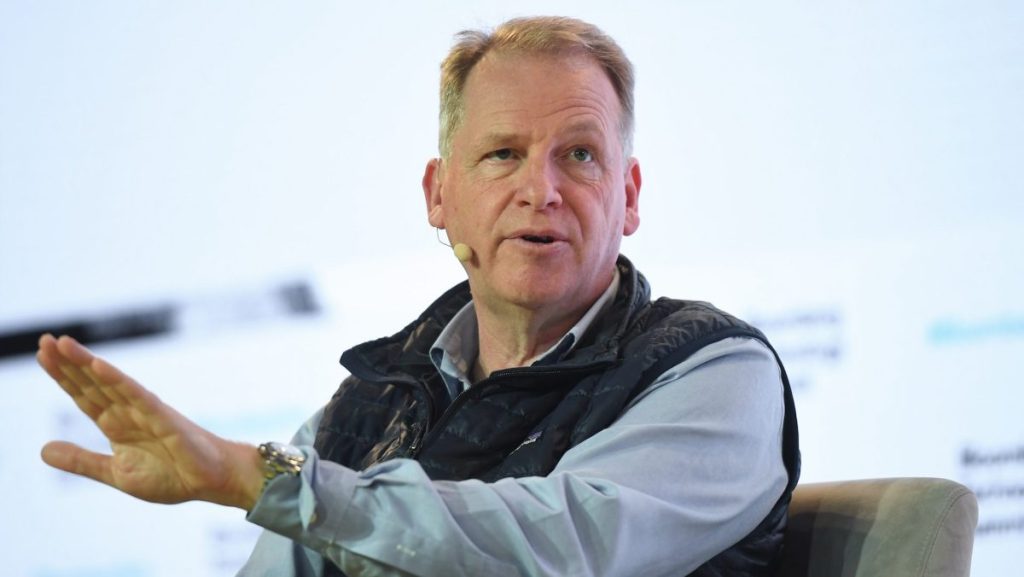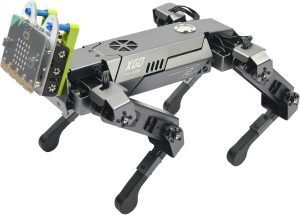SoftBank Acquires UK AI Chipmaker Graphcore

Japan’s SoftBank has made a significant move in the AI hardware market by acquiring Graphcore, a leading chip company from the UK. The terms of the deal remain undisclosed, with Graphcore’s CEO Nigel Toon noting a positive sentiment overall. Despite lengthy negotiations and regulatory approvals, the acquisition marks a new chapter for Graphcore.
Founded in 2016, Graphcore developed the “intelligence processing unit” (IPU), a processor tailored specifically for AI tasks. This innovative approach attracted major investments, although the company faced challenges that led to this acquisition. SoftBank’s previous success with UK-based chip company Arm suggests potential growth for Graphcore.
SoftBank’s Acquisition of Graphcore
Graphcore, a chip company from Bristol, UK, was acquired by Japan’s SoftBank. While details of the deal were not disclosed, Graphcore CEO Nigel Toon expressed positive sentiments, hinting at a favorable outcome overall. Rumors had circulated for some time, but long negotiations and regulatory approvals delayed the official announcement. Even now, the financial specifics of the deal, speculated to be around $500 million, remain undisclosed.
Founded in 2016, Graphcore introduced a new kind of processor called the “intelligence processing unit” (IPU). Unlike GPUs from companies like Nvidia, IPUs are built specifically for AI tasks. This technology allows for more efficient computing, particularly for large-scale AI models. Despite early promises and significant investments from big names like Microsoft and Sequoia, Graphcore faced challenges, losing key cloud deals and being overlooked for major projects by the UK government.
Challenges and Setbacks
Graphcore encountered several obstacles in recent years. The company missed out on lucrative cloud deals with Microsoft and was ignored for the UK’s exascale computer plans. Additionally, Graphcore’s forced exit from China due to US export rules added to their woes. With growing losses and no new capital since 2020, the need for a significant change became apparent. An acquisition seemed inevitable as the demand for AI hardware surged.
SoftBank is well-versed with UK semiconductor companies, having previously acquired Arm for $31 billion. Arm, now valued at almost $200 billion, shows SoftBank’s capability to grow tech companies. This acquisition could be advantageous for Graphcore as it seeks to capitalize on the booming AI market.
Positive Outlook Despite Hurdles
Although some view the sale to SoftBank as a missed opportunity for Graphcore to become a major independent AI hardware company in the UK or Europe, CEO Nigel Toon is optimistic. He assured that no layoffs are expected as a result of the acquisition. Instead, Graphcore plans to expand its workforce significantly in the UK. Both Toon and CTO Simon Knowles will continue in their roles, maintaining leadership stability.
Toon admitted that Graphcore hasn’t fully realized its early potential, largely due to the massive investments required in the AI hardware space. He emphasized the need for substantial financial backing to compete with giants like Nvidia, which boasts around 30,000 employees compared to Graphcore’s 500. This scale of investment involves extensive systems, networking, and cooling requirements, which are far beyond what Graphcore could manage independently.
Despite its modest size, Graphcore has achieved impressive technological milestones, going head-to-head with much larger competitors. The acquisition by SoftBank is viewed as the right move to secure the necessary investment for success in the rapidly growing AI market.
Regulatory Approvals and Future Plans
The acquisition received all necessary regulatory approvals, avoiding prolonged delays often seen in deals of this magnitude. Under the UK’s National Security and Investment Act, such a transaction was bound to attract scrutiny. Toon confirmed that approvals were secured in the US and other regions as well, ensuring a smooth transition.
Post-acquisition, Graphcore will operate as a wholly owned subsidiary of SoftBank, retaining its name and headquarters in Bristol. The company will also maintain its hubs in London, Cambridge, Gdansk, and Hsinchu. SoftBank’s resources and expertise could help Graphcore achieve its goal of becoming a key player in the AI hardware industry.
Graphcore’s Role in SoftBank’s AI Ambitions
Vikas J. Parekh, Managing Partner at SoftBank Investment Advisers, highlighted Graphcore’s importance in SoftBank’s AI aspirations. He noted the significance of next-generation semiconductors and computing systems in advancing artificial general intelligence (AGI). Graphcore’s technology fits well into this vision, with the potential to drive major advancements in AI.
While the exact future path for Graphcore under SoftBank’s ownership is uncertain, the acquisition positions the company to contribute significantly to AI innovations. This partnership is expected to benefit both entities, leveraging SoftBank’s financial strength and Graphcore’s cutting-edge technology to push the boundaries of AI development.
Some former employees may feel disappointed as their stock options were wiped out in the deal. However, Toon emphasized that the outcome is positive for current employees and investors willing to stay with the company. He apologized for the unfortunate circumstances but assured that the future looks bright for those still with Graphcore.
Investment and Growth Potential
Graphcore’s acquisition by SoftBank is seen as a strategic move to secure the necessary funds for growth in the AI sector. The company’s modest size compared to giants like Nvidia underscores the importance of substantial investment to keep up with industry demands.
The partnership with SoftBank could provide Graphcore with the financial backing and resources needed to scale its operations and compete globally. This growth potential is crucial as AI continues to revolutionize various sectors, from data centers to robotics. Graphcore’s advanced technology, combined with SoftBank’s support, could make a significant impact on the AI landscape.
Conclusion: A Promising Future for Graphcore
The acquisition marks a new chapter for Graphcore, with SoftBank’s backing offering opportunities for expansion and innovation. Despite past challenges, the company is now well-positioned to thrive in the competitive AI hardware market. As part of SoftBank, Graphcore aims to leverage its technology and resources to become a major player in the industry.
SoftBank’s acquisition of Graphcore represents a pivotal moment for the AI chipmaker. With substantial financial backing, Graphcore is poised to achieve significant advancements in AI technology. The partnership provides much-needed resources to compete with industry giants and marks a fresh chapter for both companies. This move reaffirms Graphcore’s potential in the competitive AI chip market.
SoftBank’s history with semiconductor companies, evidenced by its success with Arm, underscores its ability to nurture and grow tech companies. Graphcore, with its innovative IPUs, stands to benefit immensely from this relationship. Both entities are aligned in their vision to push the boundaries of AI, making this acquisition a promising development for the future of AI hardware. The backing from SoftBank will likely enable Graphcore to expand its workforce and capabilities, ultimately contributing to the fast-evolving AI landscape.





